Old Maps of Greece
Browse through our archives of Old Maps of Greece.
Greece is a country located in Southeast Europe, and is also the southernmost country located in the Balkan Peninsula. Greece shares borders with Albania, North Macedonia, Bulgaria, and Türkiye. The country is made up of nine regions, and is home to a total of 10.7 million inhabitants. The capital, and also largest city in Greece, is Athens. Greece is known to be the cradle of Western Civilization, as the country is the birthplace of democracy, western philosophy and literature, historiography, political science, theater, as well as the Olympic games. Greece is home to a unitary parliamentary republic, and the current president is Katerina Sakellaropoulou.
Around 80% of Greece is made up of mountains or hills, which makes the country one of the most mountainous in all of Europe. The highest point in the country is Mount Olympus, standing at 2,918 meters (or 9,573 feet). Mount Olympus also serves as the home for the numerous Greek Gods. Greece is also home to a vast number of islands, with the number estimated to be anything from 1,200 to 6,000. Of these islands, only around 227 are inhabited. Crete is the largest of these islands, followed by the islands of Euboea, Lesbos, and Rhodes.Greece can be split up into six ecoregions, and they are as follows: the Illyrian deciduous forests, Pindus Mountains mixed forests, Balkan mixed forests, Rhodope montane mixed forests, Aegean and Western Turkey sclerophyllous and mixed forests, and the Crete Mediterranean forests. A great majority of the trees found in Greece are oak, chestnut, evergreen, and deciduous. Within all of these forested zones, one can expect to see mammals such as wildcats, martens, brown bears, roe deer, and more rare animals like wolves, wild boars, and lynx. Greece is also home to around 6,000 species of wildflowers, with around 600 of these being endemic.
Like many other European countries, Greece is home to an aging population and slow growth rates. The current day fertility rate is 1.41 children per woman, with the highest fertility rate being measured as 5.47 children born per woman in 1900. Greece’s median age is 44.2 years old, which is the seventh highest in the world. However, the country has been known to have a high standard of living and ranks high in the Human Development Index. The economic crisis within Greece has heavily impacted family lifestyle, as current generation households are smaller and older than previous generations. Along with this, 350,000-450,000 Greeks have emigrated since 2010.
Greece is home to an economy majorly focused on the service industry, with the sector taking up 85% of the workforce. In contrast, agriculture only takes up 3%. Greece is also home to the largest economy within the Balkans. One of the most important industries in Greece is tourism, as Greece is the sixteenth most visited country in the world, racking in 14.9 million tourists in the year 2009. Some of the largest exports of Greece are refined petroleum, packaged medicaments, raw cotton, non-fillet fresh fish and cheeses.
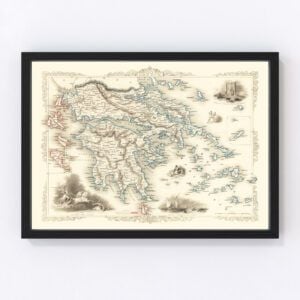
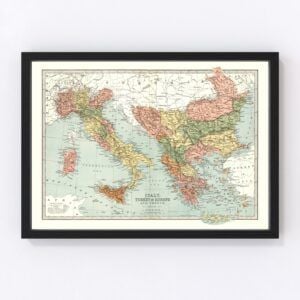
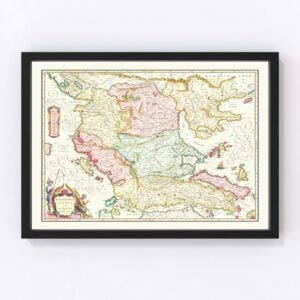
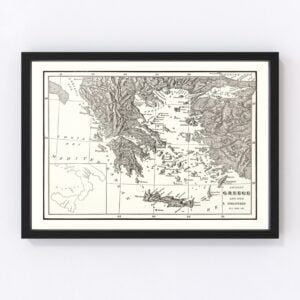
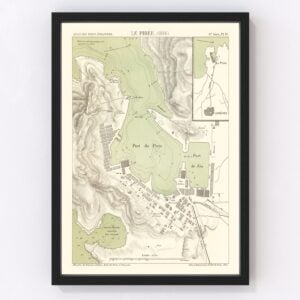
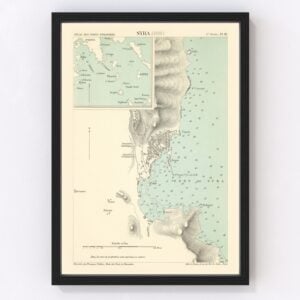

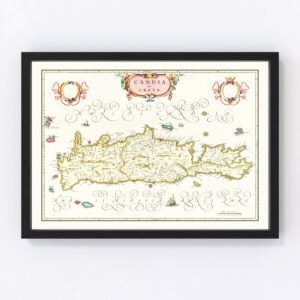
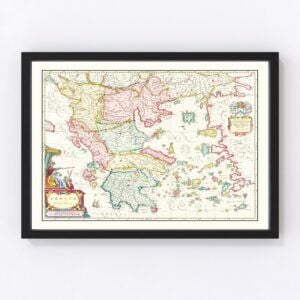
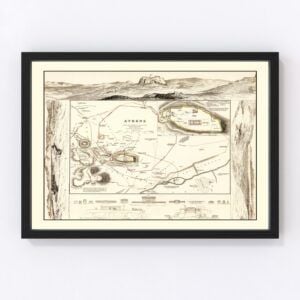
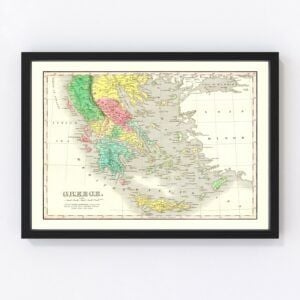
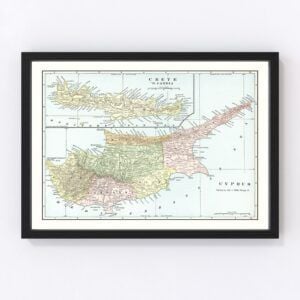
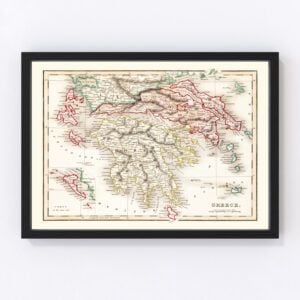
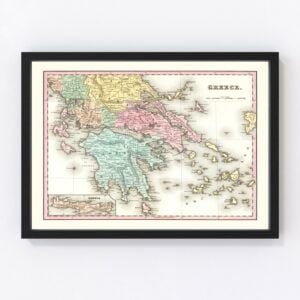
Old Maps of Greece
Browse through our archives of Old Maps of Greece.
Greece is a country located in Southeast Europe, and is also the southernmost country located in the Balkan Peninsula. Greece shares borders with Albania, North Macedonia, Bulgaria, and Türkiye. The country is made up of nine regions, and is home to a total of 10.7 million inhabitants. The capital, and also largest city in Greece, is Athens. Greece is known to be the cradle of Western Civilization, as the country is the birthplace of democracy, western philosophy and literature, historiography, political science, theater, as well as the Olympic games. Greece is home to a unitary parliamentary republic, and the current president is Katerina Sakellaropoulou.
Around 80% of Greece is made up of mountains or hills, which makes the country one of the most mountainous in all of Europe. The highest point in the country is Mount Olympus, standing at 2,918 meters (or 9,573 feet). Mount Olympus also serves as the home for the numerous Greek Gods. Greece is also home to a vast number of islands, with the number estimated to be anything from 1,200 to 6,000. Of these islands, only around 227 are inhabited. Crete is the largest of these islands, followed by the islands of Euboea, Lesbos, and Rhodes.Greece can be split up into six ecoregions, and they are as follows: the Illyrian deciduous forests, Pindus Mountains mixed forests, Balkan mixed forests, Rhodope montane mixed forests, Aegean and Western Turkey sclerophyllous and mixed forests, and the Crete Mediterranean forests. A great majority of the trees found in Greece are oak, chestnut, evergreen, and deciduous. Within all of these forested zones, one can expect to see mammals such as wildcats, martens, brown bears, roe deer, and more rare animals like wolves, wild boars, and lynx. Greece is also home to around 6,000 species of wildflowers, with around 600 of these being endemic.
Like many other European countries, Greece is home to an aging population and slow growth rates. The current day fertility rate is 1.41 children per woman, with the highest fertility rate being measured as 5.47 children born per woman in 1900. Greece’s median age is 44.2 years old, which is the seventh highest in the world. However, the country has been known to have a high standard of living and ranks high in the Human Development Index. The economic crisis within Greece has heavily impacted family lifestyle, as current generation households are smaller and older than previous generations. Along with this, 350,000-450,000 Greeks have emigrated since 2010.
Greece is home to an economy majorly focused on the service industry, with the sector taking up 85% of the workforce. In contrast, agriculture only takes up 3%. Greece is also home to the largest economy within the Balkans. One of the most important industries in Greece is tourism, as Greece is the sixteenth most visited country in the world, racking in 14.9 million tourists in the year 2009. Some of the largest exports of Greece are refined petroleum, packaged medicaments, raw cotton, non-fillet fresh fish and cheeses.
